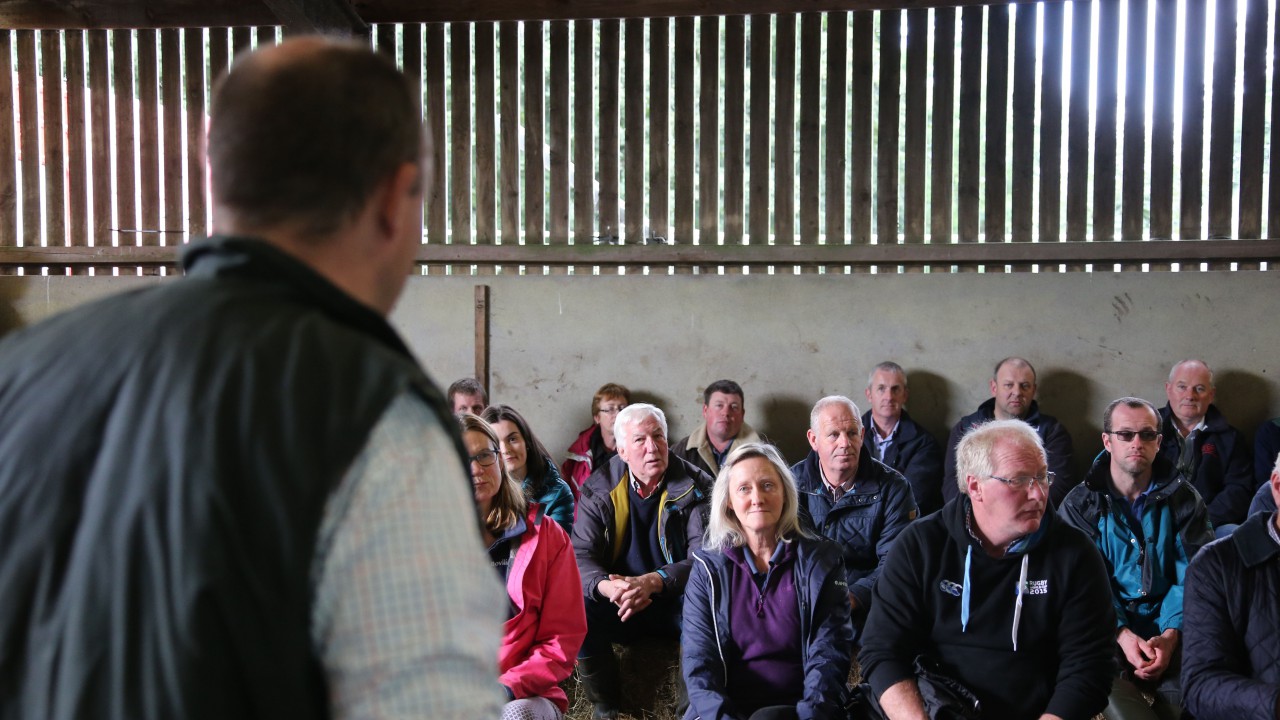A group of around 35 vets and farmers attended an informative event hosted by MSD Animal Health at Billy O’Kane’s award-winning suckler beef farm in Ballymena, Northern Ireland.
The meeting focused on O’Kane’s transformative breeding method and preventative healthcare approach in increasing farm profitability.
O’Kane kicked off the event with a presentation on the Stabiliser cattle breeding system he uses.
The transformative breeding method is based on research by the US Department of Agriculture at its Animal Research Service at the Meat Animal Research Center in Nebraska and focuses on breeding for profitable traits.
The Stabiliser breed is a multi-breed composite of Angus, Hereford, Simmental and Gelbvieh developed by Leachman Cattle Company in Colorado in the 1970s.
Research by the centre demonstrated an 8% improvement in weaning weight when a purebred cow is mated to a bull of a different breed.
The research also found that crossbred cows were more productive than purebreds. The benefits came in multiple areas including more milk production, better body condition, shorter calving indexes, and a longer productive lifetime.
Host farmer O’Kane said one of the biggest aspects to his herd management was selecting smaller cows.
Speaking at the event, he said: “Every year Northern Irish beef farmers are losing money due to inefficiencies on the farm.
Selecting bulls on visual aesthetic rather than genetic selection is where the main problem lies – big cows do not wean bigger calves and the average Irish suckler cow is losing £50 per year, which isn’t sustainable.
“Since using Stabilisers on our farm, we have noticed our processes are more efficient and we are more profitable as a result.
“We select smaller cows with good genetics which are more efficient when it comes to feeding and calving. However, this does not reduce the need to protect animals from diseases – we have a robust vaccination programme on our farm which has been specifically developed by MSD Animal Health and we couldn’t do without.
Disease prevention
“We faced huge challenges last year having to house cattle in July, two months earlier than anticipated and, as a result, we missed giving one batch of calves their third housing shot,” he added.
“When we saw a pneumonia outbreak, it was the calves which weren’t vaccinated that were significantly more poorly than those that received the vaccine. We lost two calves that year, which just proved to us how important a preventative vaccine approach is.”
Sarah Campbell, veterinary technical advisor at MSD Animal Health, also addressed attendees at the event and provided a thorough run-through on how best to protect herds from various diseases, discussing Billy’s vaccination method in detail.
She said: “It’s important to look at why animals are facing disease risk and we find it’s particularly useful to look at housing, hygiene and vaccination to improve immunity.
Protecting animal health involves a wide range of steps, not just vaccination. Biosecurity, hygiene, housing and management all must be dealt with to reduce risk.
“We would advise all farmers to talk to their own vet who will guide on the best vaccination programme for individual systems along with our website.”


